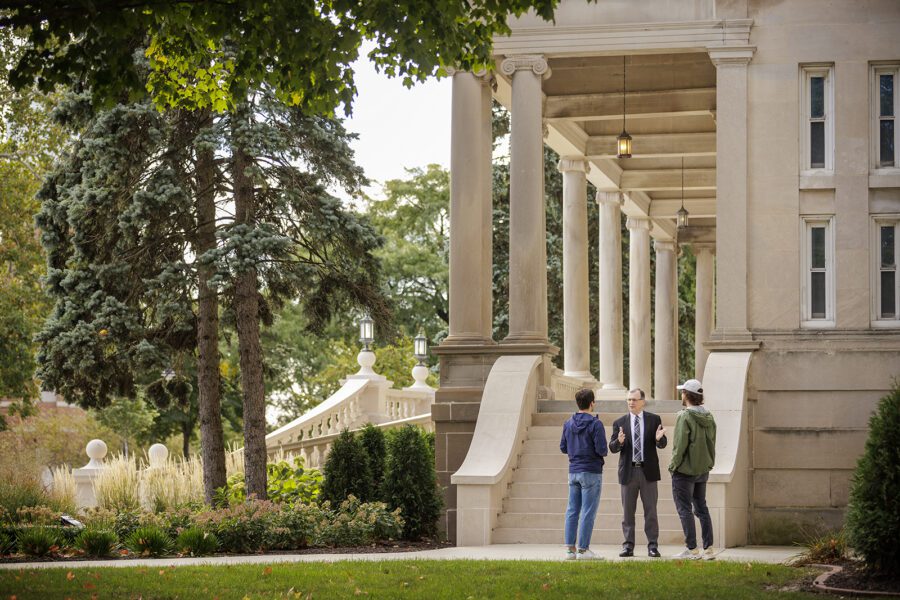

Historical Overview of the U.S. Education System
For being a relatively young country, formal education structures in the United States go back to the humble beginnings of the nation. The first public school opened in 1635, in what would become Boston, Massachusetts, to provide collegiate preparation to young boys (National Geographic). Other schools slowly popped up throughout the colonies, but most were optional private institutions for children from affluent families. As the country navigated its independence, a new idea of formalized educational structures, free for all children, was developed (Center on Education Policy).
By the mid-19th century, state-sponsored public schools appeared throughout the United States; however, compulsory attendance wasn’t mandated for lower grades until the end of the century, and not until the late 20th century was high school required. As these “common schools” continued to gain prevalence in society, so did the need for well-trained educators to provide instruction in subjects including reading, writing, arithmetic, grammar, history, geography and rhetoric (Center of Education Policy). With the formalization of educational structures came the need for trained teaching staff.
The Landscape of Modern Education
There are hundreds of bachelor’s degree programs in education offered throughout the United States, most of which allow students to choose from age level-related concentrations and certifications. Preservice teachers (undergraduate students who have not yet completed coursework and/or licensure) train for their future careers using a combination of theoretical and practical educational components. Each state maintains its own licensing standards for educators, which is required to apply for teaching jobs, but many include a set amount of practicum (mentored teaching) hours to be completed (U.S. Dept. of Education).
A master’s degree in education-related topics allows teachers to further develop their knowledge of curriculum, instruction techniques or subject-specific topics. Choosing to further one’s education with a graduate program sets teacher-candidates apart and can result in higher pay grades or leadership opportunities. As of 2021, about half of all kindergarten-high school teachers in the U.S. held an advanced degree (Bureau of Labor Statistics).
The field of education is often distinguished by its high-demands on educators and support staff, particularly since the COVID-19 pandemic. However, to address these and other industry concerns that have led to teacher shortages in the past five years, many school districts have taken steps in the post-pandemic years to facilitate a more attractive profession. According to a 2023 report from the U.S. Bureau of Labor Statistics, there are more than 5.4 million teaching jobs in the U.S. and the median salary for educators who hold a bachelor’s degree is $50,000.
Is going to school for an education degree the right choice for me?
Before enrolling, consider the following:
- What are my career goals and how will this program help me achieve those?
- What are the short- and long-term benefits and tradeoffs?
- What type of curriculum delivery (in-person, online or hybrid) is best suited for my needs as an adult learner?
- Do my skills and talents orient me toward a job that is focused on instruction, curriculum and relational connections?
Purposeful Advantages—Education at Olivet
Olivet Nazarene University offers a spectrum of education programs, all of which meet the quality standards recognized by the Illinois State Board of Education (ISBE), in consultation with the State Educator Preparation and Licensure Board (SEPLB). Undergraduate students choose from four key areas including child development, early childhood education, elementary education and special education. Current educators can choose to pursue a Master of Arts in Education degree or the Doctor of Education: Ethical Leadership degree, both of which are offered exclusively online.
A degree in education not only provides theoretical knowledge through classroom engagement and practical application through practicum hours and student teaching, but also prepares students for the Educative Teacher Performance Assessment (edTPA). Graduates of the School of Education at Olivet Nazarene University have consistently exceeded the national average pass rate for the edTPA with an impressive 98% of seniors passing the exam. Undergraduate students also complete the requirements to earn an Illinois Professional Educators License by the time they graduate. Adhering to their high standards of quality has earned Olivet an A+ ranking by the National Council on Teacher Quality—one of only two programs in the state of Illinois to receive an A+ (NCTQ).
Education was first offered as a field of study at Olivet when the University began in 1907. The University still offers a traditional on-campus bachelor of art in education degree, but has also evolved to offer hybrid and online programs and certificates to maximize accessibility for adult learners. Additionally, the education programs at Olivet are competitively priced to meet the needs of students. For example, the master’s programs in Curriculum and Instruction and Reading Endorsement can be completed in less than two years, completely online.
Olivet Nazarene University has been recognized as a college of distinction by a range of organizations including U.S. News and Colleges of Distinction, which consistently lists the School of Education as a distinguished program.
For more information on Olivet’s accredited education degree programs, visit olivet.edu/education.
Referenced articles:
National Geographic (https://education.nationalgeographic.org/resource/first-public-school-america/)
U.S. Department of Education (https://files.eric.ed.gov/fulltext/ED497134.pdf)
Bureau of Labor Statistics (https://www.bls.gov/ooh/field-of-degree/education/education-field-of-degree.htm)
Center on Education Policy (https://files.eric.ed.gov/fulltext/ED606970.pdf)
NCTQ (https://www.nctq.org/dmsView/Illinois_Profile_-_TeacherPrepReviewReading)





